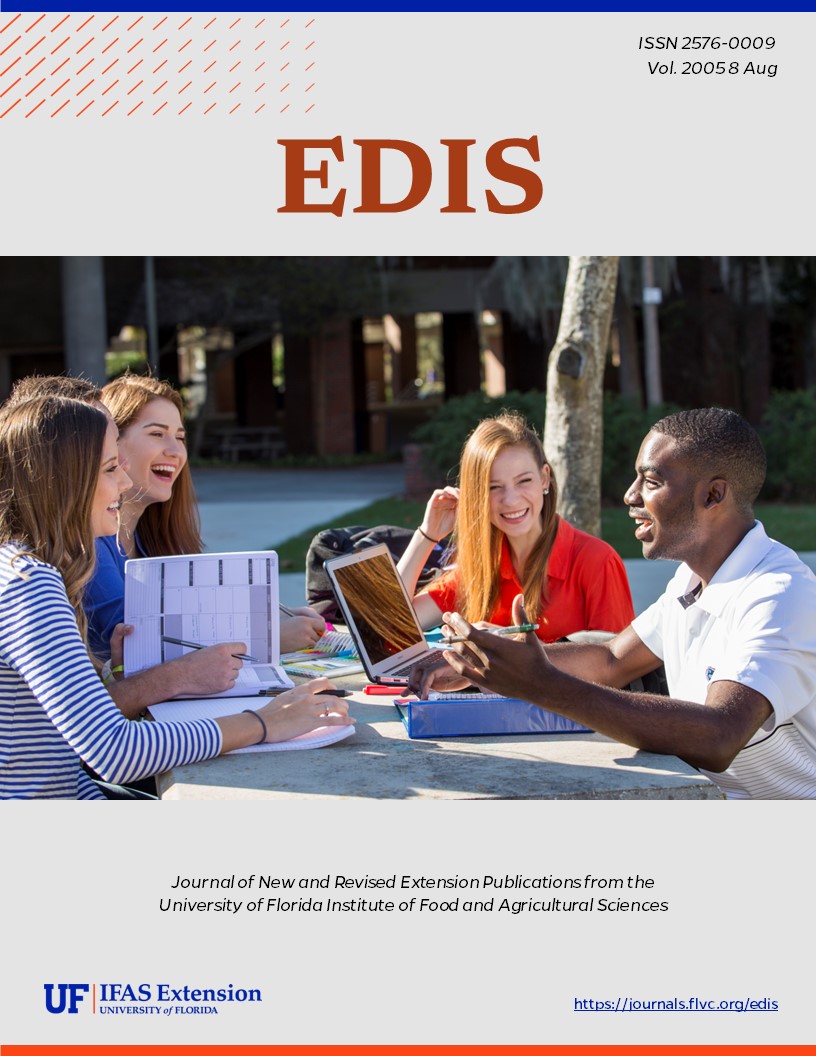Abstract
Bromeliads are members of the pineapple family Bromeliaceae. They are perennial herbs that lack woody stems and typically grow on other plants or substrates. Bromeliads are not mosses as some of their common names suggest. They are flowering plants, although their blossoms can be very small. This document is CIR 1466, one of a series of the Wildlife Ecology and Conservation Department, UF/IFAS Extension. Original publication date September 2004.
References
Arny, Nancy P. 1996. Spanish Moss and Ball Moss. UF/IFAS FOR 52. School of Forest Resources and Conservation, http://edis.ifas.ufl.edu.
Bennett, Bradley C. 1992. The Florida bromeliads, Guzmania monostachia. Journal of the Bromeliad Society 42(6): 266
Coile, Nancy C. 2000. Notes on Floridas Endangered and Threatened Plants. FDACS/DPI, Bureau of Entomology, Nematology and Plant Pathology, Botany Section. Contribution No. 38, 3rd ed., Gainesville, FL. (http://www.virtualherbarium.org/EPAC).
Flora of North America Association. 2000. Flora of North America, Vol. 22. http://flora.huh.harvard.edu/FNA.
Florida Department of Agriculture and Consumer Services, Division of Plant Industry, Regulated Plant Index, (http://doacs.state.fl.us/pi/enpp/botany/images/Notes2003.pdf).
Florida Natural Areas Inventory. 1997. Matrix of Habitats and Distribution by County of Rare/Endangered species of Florida. Florida Natural Areas Inventory/The Nature Conservancy. (http://www.fnai.org).
Frank, J.H. 1996. Carnivorous bromeliads. (http://BromeliadBiota.ifas.ufl.edu/carnbr.htm).
Frank, J.H. 1996. Bromeliad phytotelmata. (http://BromeliadBiota.ifas.ufl.edu/bromfit.htm).
Frank, J.H. 1996. Pests of bromeliads. (http://BromeliadBiota.ifas.ufl.edu/bropes.htm)
Hall, David W. 1993. Illustrated Plants of Florida and the Coastal Plain. Maupin House, Gainesville, FL.
Langdon, K.R. 1980. The bromeliad, Guzmania monostachya, An Endangered Plant in Florida. Nematology Circular No. 69 (Botany 12). Contribution NO. 220, Bureau of Nematology. FDACS/DPI, Gainesville, FL.
Larson, Barbra and J. Howard Frank. 2000. Mexican Bromeliad Weevil, Metamasius callizona (Chevrolat). UF/IFAS Featured Creatures. EENY-161. (http://creatures.ifas.ufl.edu/orn/m_callizona.htm).
Larson, Barbra, J. Howard Frank, and Olan Ray Creel. 2001. Florida Bromeliad Weevil, Metamasius mosieri Barber. UF/IFAS Featured Creatures. EENY-209. (http://creatures.ifas.ufl.edu/orn/m_mosieri.htm).
Long, Robert W. and Olga Lakela. 1976. A Flora of Tropical Florida. Banyan Books, Miami.
Save Florida's Native Bromeliads, A Project of the Florida Council of Bromeliad Societies and the University of Florida/IFAS. (http://savebromeliads.ifas.ufl.edu).
Sutton, David L. 1999. Aquatic, Wetland and Invasive Plant Glossary, University of Florida, Institute of Food and Agricultural Sciences, (http://aquat1.ifas.ufl.edu/glossary.html).
Ward, Daniel B. (ed.). 1979. Plants Vol. 5, In: Rare and Endangered Biota of Florida, P.C.H. Pritchard (ed.). University Presses of Florida, Gainesville, 175 pp.

